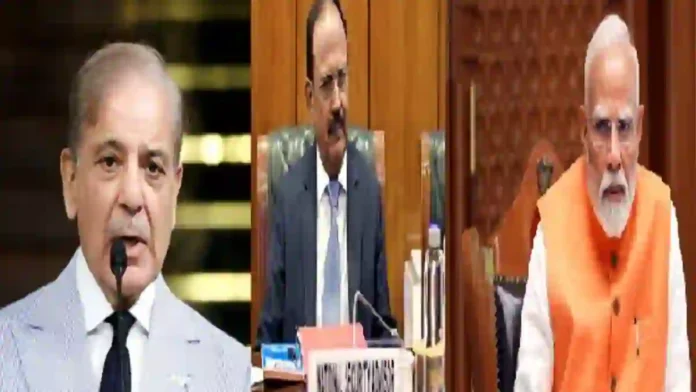In the aftermath of heightened military tensions between India and Pakistan, Pakistan Prime Minister Shehbaz Sharif has sought to allay fears of a potential nuclear conflict. Addressing students in Islamabad, Addressing students in Islamabad, Sharif said Pakistan’s nuclear program is aimed solely at maintaining peace and protecting its national interests. “Pakistan’s nuclear program is solely for peaceful purposes and national defence, not for aggression
Sharif emphasised that Pakistan’s nuclear program is designed solely for peaceful purposes and national defence, not for aggression. He reiterated that the country’s nuclear capability serves as a deterrent to maintain peace and protect national interests, rather than as a tool for initiating conflict.
Read- Indian Army’s ATAGS To Get Range Over 80 Km: All About DRDO’s Smart Ammunition Plan For Guns
The recent escalation was triggered by a terror attack in Pahalgam, Jammu and Kashmir, on April 22, which resulted in the deaths of 26 civilians. In response, India launched Operation Sindoor on May 7, conducting precision strikes on nine sites across Pakistan and Pakistan-occupied Kashmir. These sites included Bahawalpur, a known stronghold of the Jaish-e-Mohammad terror group. The Indian operation specifically targeted terrorist infrastructure, avoiding Pakistani military installations, and was described as focused and non-escalatory by Indian officials.
Pakistan, however, responded with what it described as “full might” during the four-day confrontation, which resulted in the deaths of 55 Pakistani nationals. Despite the intensity of the exchange, Sharif maintained that the use of nuclear weapons was never considered, and Pakistan’s response was confined to conventional military means.
During the escalation, Pakistan’s Defence Minister Khawaja Asif stated that the country was on high alert and would only consider the use of its nuclear arsenal under extreme circumstances—specifically, if there was a direct threat to the nation’s existence. He reiterated that Pakistan’s nuclear weapons would not be used pre-emptively or for aggression, but strictly as a last resort in the event of an existential threat.
Read- How A Chinese Research Vessel Attempted To Conceal Its Presence In Bay of Bengal For Days
Read- Concern For India As Debt Diplomacy Sees Bangladesh, Pakistan Converge With China
The nuclear discourse intensified when Javed Ashraf Qazi, former Director General of Pakistan’s Inter-Services Intelligence (ISI), warned of the catastrophic consequences of a nuclear exchange. Qazi highlighted that both India and Pakistan possess more than 170 nuclear bombs each, and a conflict could lead to devastation not only for the two countries but for the entire region. Drawing a parallel with World War-II, he noted that the impact of even a limited nuclear exchange would be horrific and long-lasting.
Indian officials have consistently dismissed what they term as “nuclear blackmail” by Pakistan. They argue that Pakistani leaders have historically invoked the nuclear threat during periods of heightened bilateral tensions, using it as a means to deter Indian military action. India’s stance has been to respond to terror attacks with measured and targeted military operations, while avoiding escalation to the nuclear threshold.
The recent crisis underscores the persistent volatility in India-Pakistan relations, particularly given their status as nuclear-armed neighbours. While Pakistan’s leadership has reiterated its commitment to a defensive nuclear posture, the spectre of nuclear conflict remains a concern for the region and the international community. The episode highlights the importance of credible communication, restraint, and robust crisis management mechanisms to prevent miscalculation and escalation in South Asia.
Based On BT Report
Agencies




